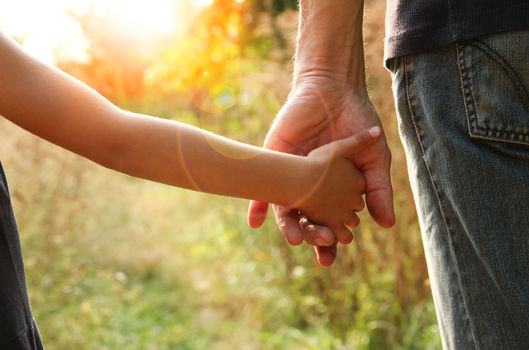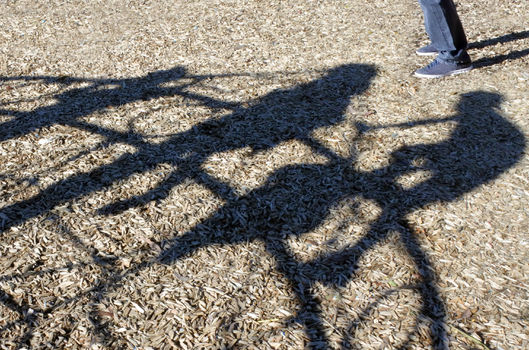What is Grooming?
Grooming is a word used to describe how people who want to sexually harm children and young people get close to them, and often their families, and gain their trust.
They do this in all kinds of places, including, but not limited to: in the home or local neighbourhood, the child's school, youth and sports clubs, the local church and the workplace.
Grooming may also occur online by people forming relationships with children and pretending to be their friend. They do this by finding out personal information about their potential victim (e.g. their likes and dislikes, their family circumstances) with the aim of identifying a need in the child which they will attempt to fill.
For example, if a child is lonely, a potential abuser may give the child attention and develop a 'special relationship'; this then might make it easier to manipulate the child.
The abuser might also try to find out what the likelihood is of the child telling someone else about the grooming. The abuser may seek to find out as much as they can about the child's family and social networks and, if they think it is 'safe enough', attempt to isolate their victim.
This may be done by using flattery and promises of gifts, or threats and intimidation, in order to achieve some control. It is easy for 'groomers' to find child victims online. They generally use chat rooms and messaging apps which are focused around young people's interests.
They often pretend to be younger and may even change their gender. Many give a false physical description of themselves which may bear no resemblance to their real appearance - some send pictures of other people, pretending that it is them.
Groomers may also seek out potential victims by looking through messaging apps and social networks.
Anybody can be a groomer, no matter their age, gender or race. Grooming can take place over a short or long period of time – from weeks to years. Groomers may also build a relationship with the young person's family or friends to make them seem trustworthy or authoritative.
In many circumstances, grooming online is faster and, due to being anonymous, can result in children trusting an online 'friend' more quickly than someone they had just met 'face to face'.
Abusers intent on sexually harming children can easily access information about them online and they are able to hide their true identity, age and gender.
People who groom children may not be restricted by time or accessibility to a child as they would be in the 'real world'.
Grooming of adults
When we speak about grooming of adults, we are talking about how adults are prevented from seeing Child Sexual abuse occurring.
Vulnerable adults can be groomed as well - we cover this in our "Grooming of adults/young people with an intellectual disability" section on the Abuse of children with disabilities page.
Child sex offenders will often seek out adults and groom them in order to get access to their children. By "bonding" with adults in this way the sex offender can create a relationship either built on trust or dependency and gain access to the children through it.
Yet many people will have experienced someone close to them abusing a child, but have not picked up on it.
What stops adults seeing abuse?
When something is so difficult to think about, it is only human to find ways of denying it to ourselves. One of the common thoughts that parents in this situation have is; 'My child would have told me if they were being abused and they haven't - so it can't be happening'.
Other things people have said to themselves to deny what is happening include:
- "He was the perfect father; he was involved with the children, he played with them and when our daughter was ill he looked after her so well."
- "I thought they were just fooling around. He couldn't be abusing anyone at 14."
- "My brother would never do that to a child. He has a wife and children."
- "My friend has had a longstanding relationship with a woman. So how can he be interested in boys?"
- "She was their mother: how could she be abusing them?"
- "He told me about his past right from the start. He wouldn't have done that if he hadn't changed and I'd know if he'd done it again."
Action can lead to abuse being prevented, and children who are being abused receiving protection and help to recover.
It can also lead to the abuser getting effective treatment to stop abusing and becoming a safer member of our community. If the abuser is someone close to us, we need to get support for ourselves too.
ACT upon your concerns - the section will help you with what to do next.
Abuse of children with disabilities
Why children with a disability are three times as likely to suffer sexual abuse than other children.
Warning signs that a child is being sexually abused or exploited
Children often show us rather than tell us that something is happening - What are the warning signs of child sexual abuse?
Warning signs that an adult might be a risk to a child or a young person
Concerned about an adults behaviour with a child? Trust your concerns.
Act
If you have concerns - then you can ACT on these concerns. Protect the next child.
Did you know?
23.6% of young people experienced an adult they do not know in real life trying to contact them over a site, app or game.
Source - NSPCC (2018)
Read more









